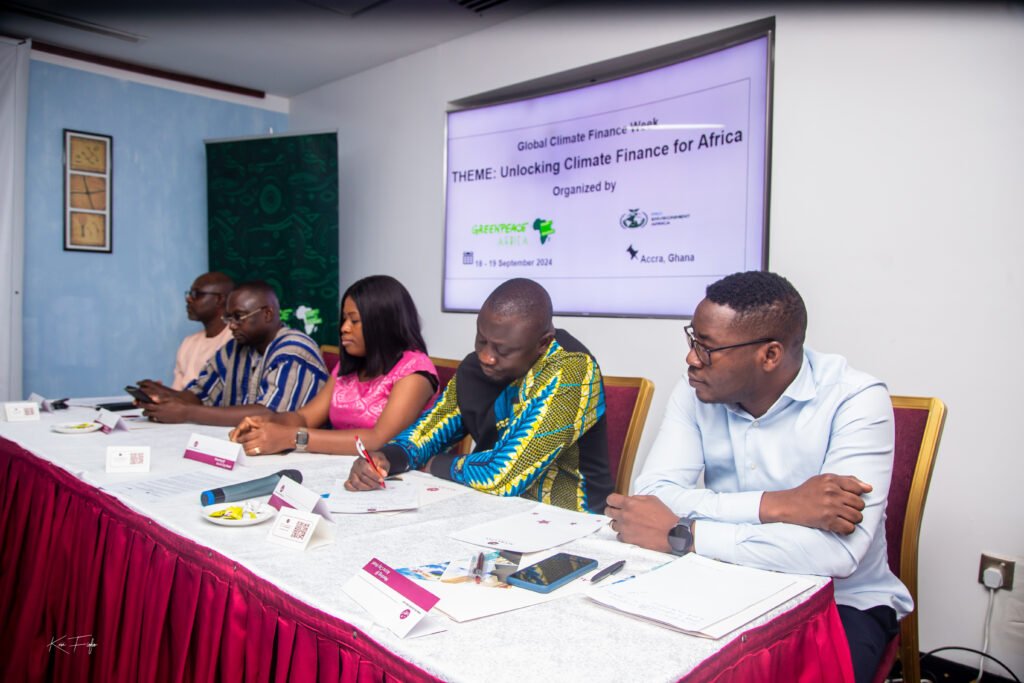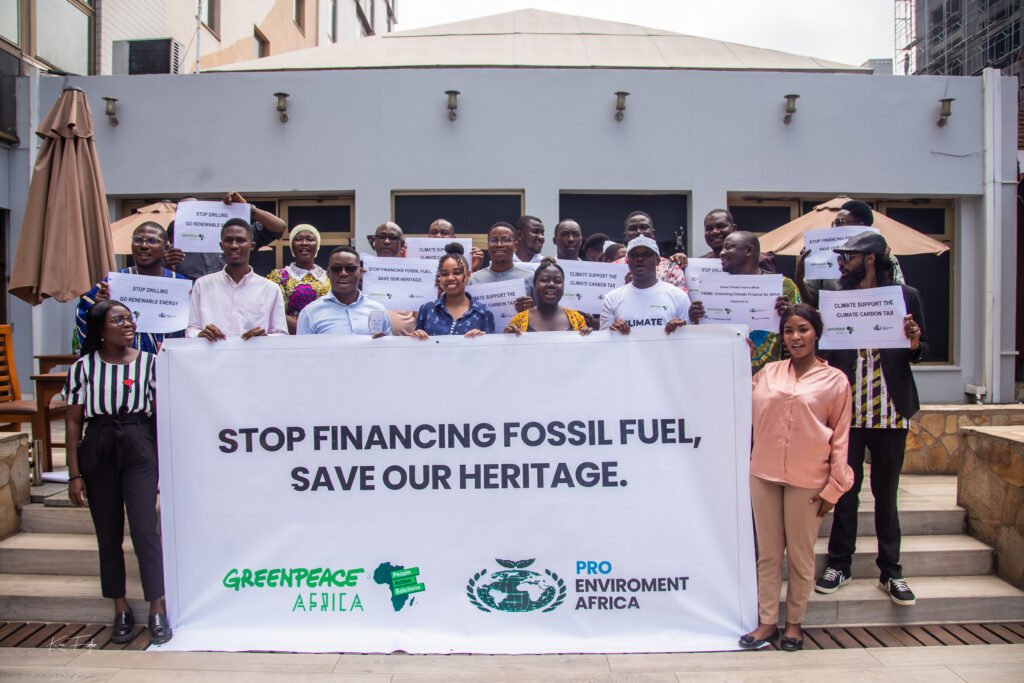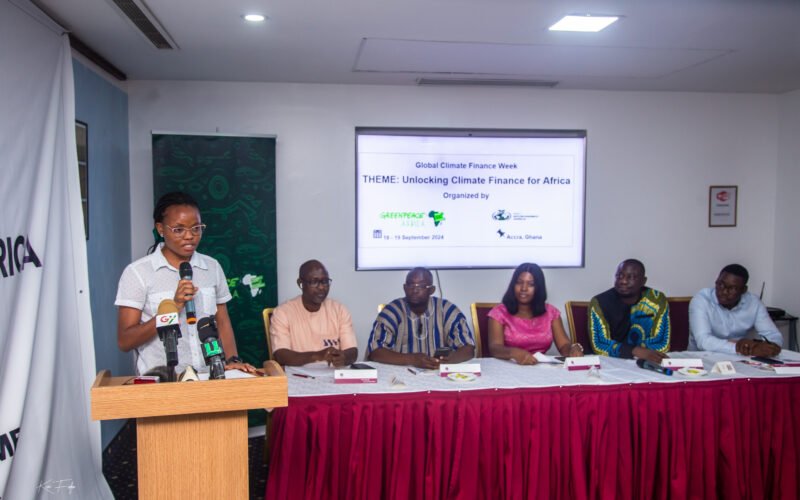On the 19th of September, 2024, a press conference was held as part of the Global Week of Action on Climate Finance, spearheaded by Greenpeace Africa in collaboration with Pro Environment Africa and other stakeholders. The event, which took place at the Accra City Hotel, brought together key players to discuss the rising global temperatures and their disproportionate impacts on developing nations, particularly in Africa. The discussions revolved around climate finance, emissions reduction, and transitioning to renewable energy as Africa pushes for stronger initiatives like the Climate Damage Tax (CDT) ahead of the 29th Conference of the Parties (COP29).
In his opening statement, Mr. Eric Kofi Afenorpe, a consultant for Greenpeace Africa and Pro Environment Africa, emphasized the grave situation facing the planet. He highlighted how “polluters are causing rising temperatures with devastating effects. Disasters are happening – floods, droughts – all over the world, and there is an urgent need to curb global temperatures by 2040.” This rising crisis is felt most by the least developed and developing nations, particularly those in Africa, who bear the brunt of the environmental, economic, and social impacts of climate change despite being the least responsible for its causes.

The conference shed light on the unfulfilled promises of developed nations, the main contributors to global carbon emissions, who had pledged to provide financial resources to help clean up the damage caused by their industries. Yet, much of these promises remain unmet, leaving vulnerable nations underfunded in their quest to mitigate and adapt to climate impacts.
The campaign seeks not only to raise awareness about the need for increased financing but also to pressure wealthier nations to deliver on their commitments to cut down emissions and transition from fossil fuels to renewable energy.
Mr. Romeric Houdou Samson, Monitoring, Evaluation, and Learning Manager at Greenpeace Africa, reinforced the urgency of the situation. “Africa continues to transition from fossil fuels. Climate finance is seen as an avenue to explore and harness innovative solutions that enable African communities to address the impact of climate change.” He underscored that beyond immediate funding, the continent needs long-term strategic financing mechanisms such as the New Quantified Goal (NQG) on climate finance, which aims to establish a sustainable and robust financial support system for African nations transitioning to a low-carbon future.

As Africa prepares for COP29, there is a growing focus on actionable strategies, including the implementation of the Climate Damage Tax (CDT), designed to reduce fossil fuel consumption. The tax, alongside stronger climate finance mechanisms, could ensure that Africa receives the support it needs to achieve a just energy transition and build resilience against future climate threats.
The event concluded with calls for sustained international cooperation to create financing pathways that align with Africa’s sustainable development goals and the global goal of limiting temperature rise. The urgency of the climate crisis is clear, and immediate action is necessary not only to provide financing but also to fulfill the promises of reducing carbon emissions and supporting vulnerable nations.









